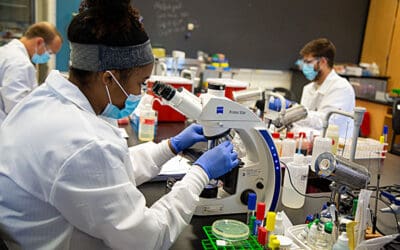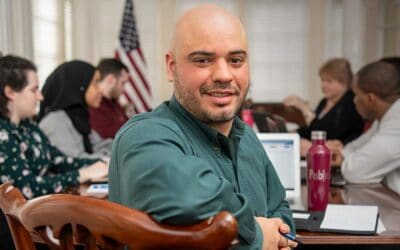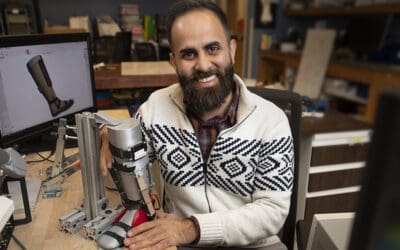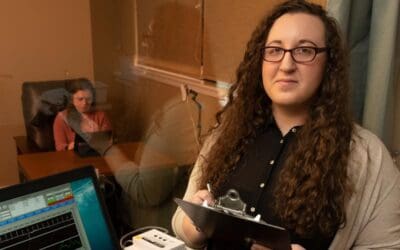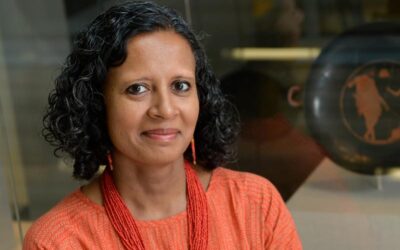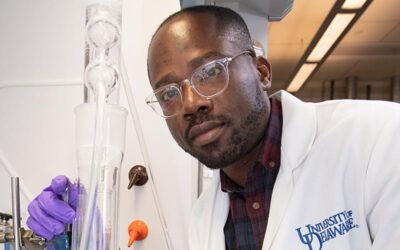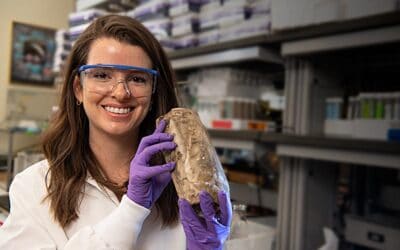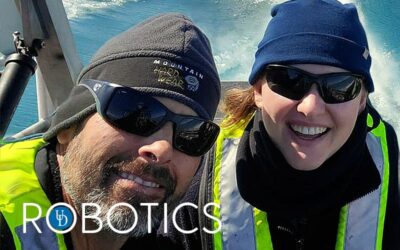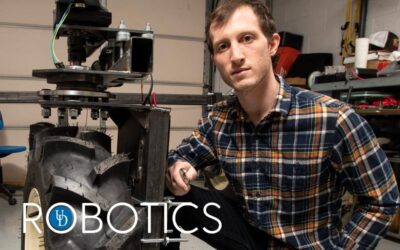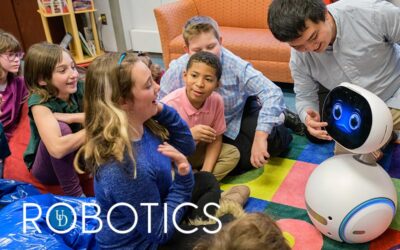Education
GRAD STUDENTS ON THE FRONT EDGE OF DISCOVERY
Nefetaria Yates is a doctoral student and Graduate Scholar in the University of Delaware’s School of Education, where she studies sociocultural and community-based approaches to education. At the heart of her research is identity development and resilience of youth in pan-African communities. Her focus is Black girls and their experiences in formal and informal learning environments, from traditional classrooms to out-of-school programs.
Pre-pandemic photo by Kathy Atkinson
EDUCATION
GRAD STUDENTS ON THE FRONT EDGE OF DISCOVERY
Nefetaria Yates is a doctoral student and Graduate Scholar in the University of Delaware’s School of Education, where she studies sociocultural and community-based approaches to education. At the heart of her research is identity development and resilience of youth in pan-African communities. Her focus is Black girls and their experiences in formal and informal learning environments, from traditional classrooms to after-school programs.
Developing resilient Black girls
by Tracey Bryant
T he teens in her after-school programs in Chester, Pennsylvania, could be at once serious, funny, dreaming, doubtful, hopeful, shy, strong-willed. Mentoring them gave Nefetaria Yates a lift, switching on all of her caring buttons. So much so, that when Yates applied to the Ph.D. program in the School of Education at the University of Delaware, she knew she wanted to focus on youth development and help inspire positive change in young lives.
A big reason why Yates was drawn to UD’s doctoral program is because it offers a specialization in sociocultural and community-based education.
“I love research and teaching. I’m passionate about that,” Yates said. “I want to share time between both spaces in a way that connects scholarship to the community.”
At the heart of Yates’ research is identity development and resilience of youth in pan-African communities. Her specific focus is Black girls and their experiences in both formal and informal learning environments, from traditional classrooms to out-of-school programs.
“The expectation imposed on these girls is unfair,” she said. “There’s a lot of research on the adultification of Black girls — they are regarded as more adult-like and expected to operate as an adult, whether about their bodies or sex, when they are only 12 or 13 years old. Interpersonally, they are not allowed to be children. A lot of this is connected to stereotypes and to undervaluing.”
Yates said hip-hop artist Megan Thee Stallion first coined the term “hot girl shit,” urging Black women to take ownership of their bodies. The celebrity and current college student keyed on the dangers of objectification in “Why I Speak Up for Black Women” in a recent op-ed in the New York Times:
“I’ve realized that violence against women is not always connected to being in a relationship. Instead, it happens because too many men treat all women as objects, which helps them to justify inflicting abuse against us when we choose to exercise our own free will,” Megan said.
“From the moment we begin to navigate the intricacies of adolescence, we feel the weight of this threat, and the weight of contradictory expectations and misguided preconceptions. Many of us begin to put too much value to how we are seen by others. That’s if we are seen at all.”
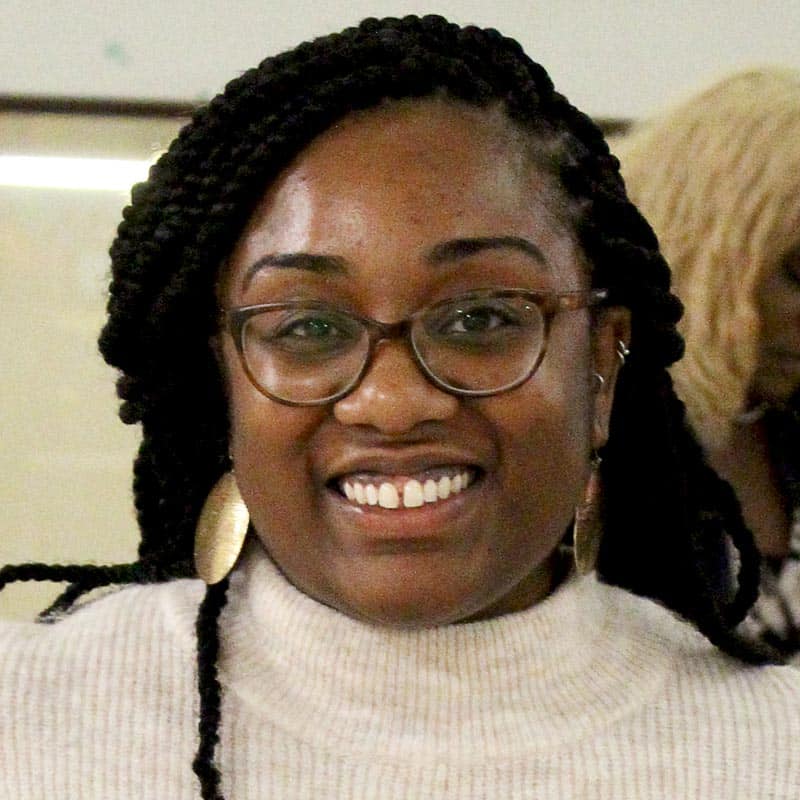
What’s it like being a grad student at UD?
“I’m excited to be at this stage. In general, the faculty here are very supportive, much more than at other institutions.”
— Nefetaria Yates
Where do you see yourself in the future?
“Definitely teaching, doing research and probably moving south to get away from the winter cold. I love writing, so I would love to do books from my research and fiction. I also enjoy curriculum development, so working with school districts and nonprofits, particularly around Black girls.”
— Nefetaria Yates
Resilience through “ratchetness”
Yates has worked on multiple studies at the University and is now doing independent research for her Ph.D. She credits her advisers — Professors Rosalie Rolon Dow, Yasser Payne and Ann Aviles — for preparing her. She’s had the opportunity to co-author articles and co-present with each of them.
“All three have taught me how to collect and analyze community-based interview data, as well as how to maintain the integrity of participant stories and voice in publications,” she said. “Not only do my advisers support me academically but they also offer personal mentorship beyond the academics of graduate school.”
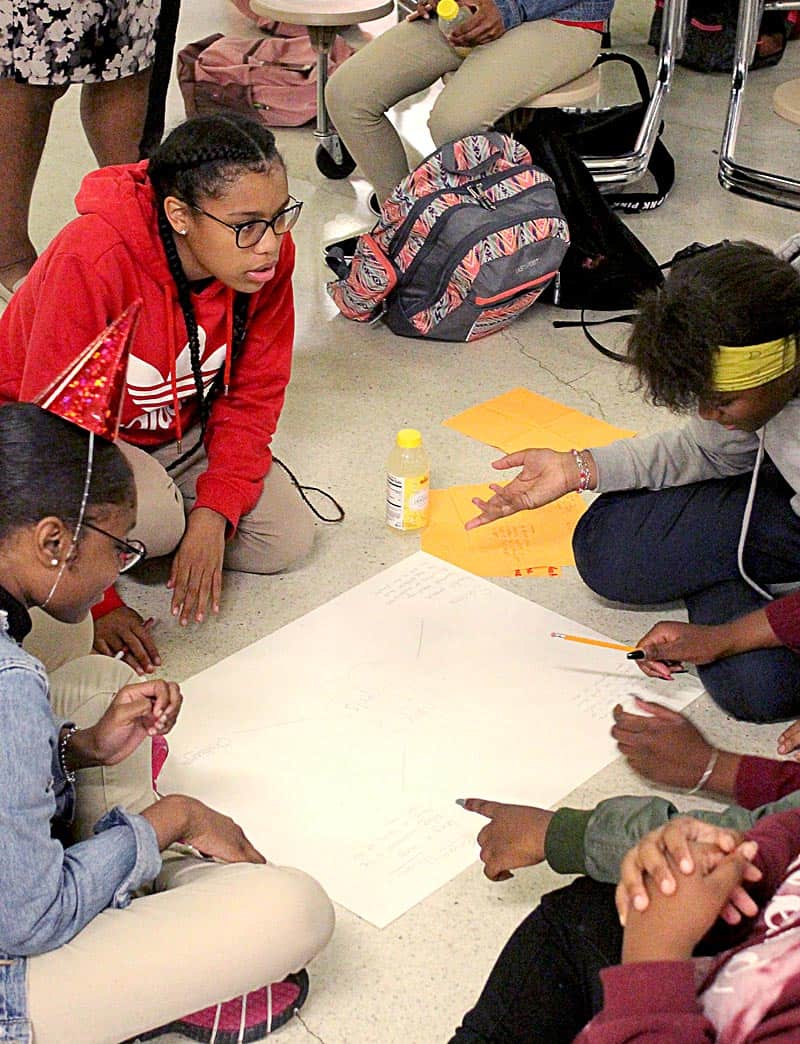 Yates frequently leads youth programs in Chester, Pennsylvania. Students here are focusing on the concept of being change agents in their community. Photo from ‘On the Table’ event facilitated by the Chester Education Foundation in partnership with The Foundation for Delaware County and The Philadelphia Foundation. Photo by Robb Lim, courtesy of Chester Education Foundation.
Yates frequently leads youth programs in Chester, Pennsylvania. Students here are focusing on the concept of being change agents in their community. Photo from ‘On the Table’ event facilitated by the Chester Education Foundation in partnership with The Foundation for Delaware County and The Philadelphia Foundation. Photo by Robb Lim, courtesy of Chester Education Foundation. For her dissertation, Yates is examining school discipline and the ways that Black girls show up in school. She’s framing “ratchetness” — a term that grew out of hip-hop culture referring to Black women who are loud, combative or dress provocatively — as a resilience tactic for dealing with the structural pressures these girls face in and out of school. She’s also looking at the impact of dress codes and how this connects to body image.
In “Colors Outside the Lines: Recollections and Reflections on Black Girlhood,” Yates is documenting the K-12 schooling experiences of Black women to provide a more nuanced view into Black female identity development. She has interviewed 20 women so far, exploring notions of double-consciousness, which W.E.B. DuBois defined as a sense of always looking at one’s self through the eyes of others, as well as micro-aggression experiences around race, gender, sexuality, and family and community relationships.
“The women spoke a lot about their relationships with their mothers — how it informed their trajectory in life,” she said. “There is a lot around mental health and being oversexualized as girls, from choosing to engage in it, or just developing early and being shamed for it.”
Yates said she is thankful she could approach her mom about any subject when she was growing up.
“I was very sheltered,” she said. “My parents focused a lot on academics, and that was the center of my upbringing. My mom and I had open conversations about everything. And she told me the truth. She gave me the option to decide what I wanted to do and how to live my life.”
Yates also credits her community for its positive influence.
“It takes a village to raise a child, and for me, that village was Chester,” she said, adding that her mother would still be living there had they not had a tragedy — a house fire. “Violence and drugs are in the news too much. What I got was a sense of community, of home, a sense of pride in who you are.”
Yates said her parents pushed her toward education. Her mom, who does philanthropy work in the nonprofit sector, was adamant about that. Her parents had wanted her to go into medicine. But she was more attracted to psychology, which she received her bachelor’s degree in at UD, with a concentration in culture and Africana studies. Then she got her master’s in educational foundations from Widener University, with a certificate in educational leadership.
While Yates has been a community leader for several years, she now also calls herself a scholar-activist. In addition to working on her doctoral research, she co-chaired the Diversity Committee of UD’s Graduate Student Government and served as president for the Black Graduate Student Association. She has been a strong advocate for students of color, working on recommendations for University leadership to help increase diversity at UD.
Conversations about racism and inequity can be uncomfortable, Yates said. She recalls teaching her first Diversity in Secondary Education class for pre-service teachers. It was the first time many had heard about unconscious bias and structural violence, and some people were offended. But teachers want their students to be successful, Yates said, so explaining how inequities in the system reflect in how students see themselves often hits home.
“My focus is youth-centered, for sure,” Yates said. “But my ultimate goal is to elevate and highlight voices that have been silenced. And I’m always careful about how I say that. People already have voice — it’s about listening. Long-term, I’d like to see my work shift systems.”
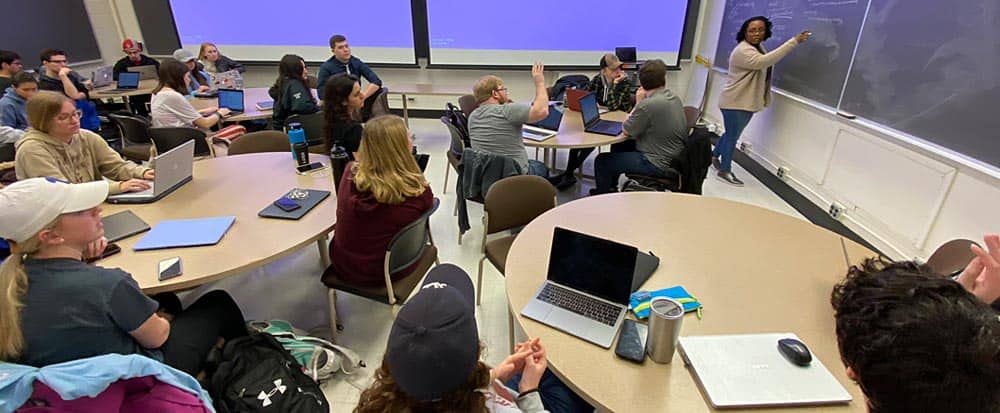
ABOVE: Doctoral student Nefetaria Yates teaches a Diversity in Secondary Education class for pre-service teachers at UD. Pre-pandemic photo by David Barczak
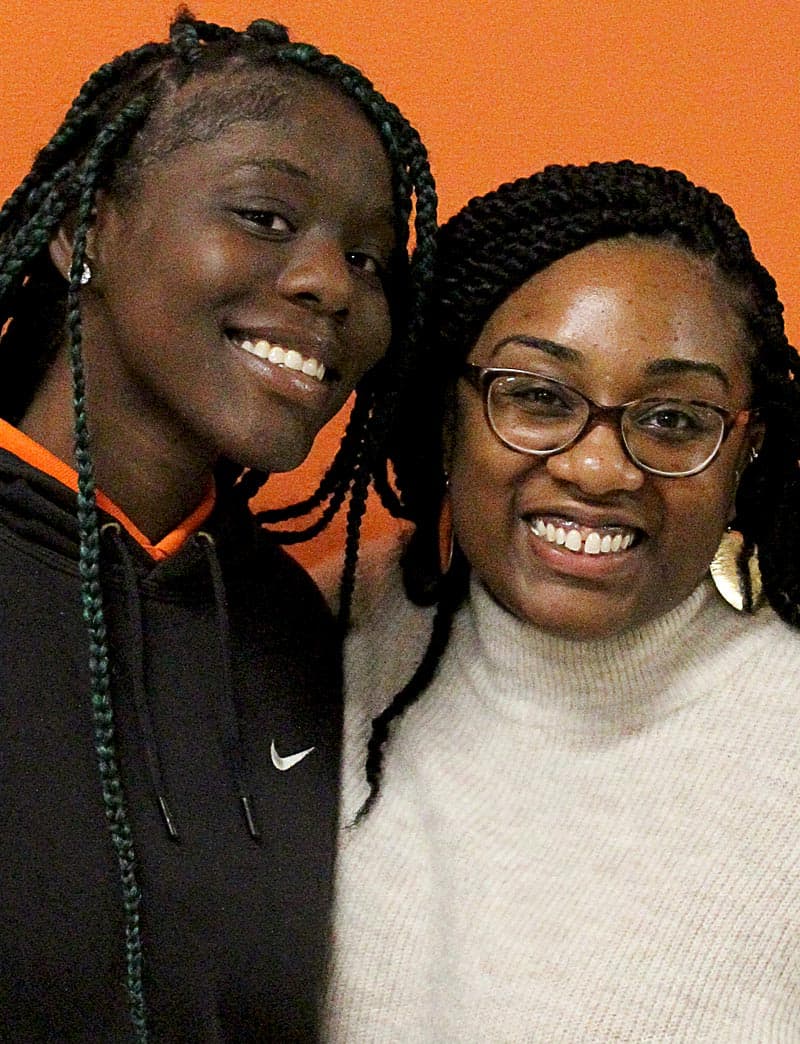
What advice would you give prospective grad students?
— Nefetaria Yates
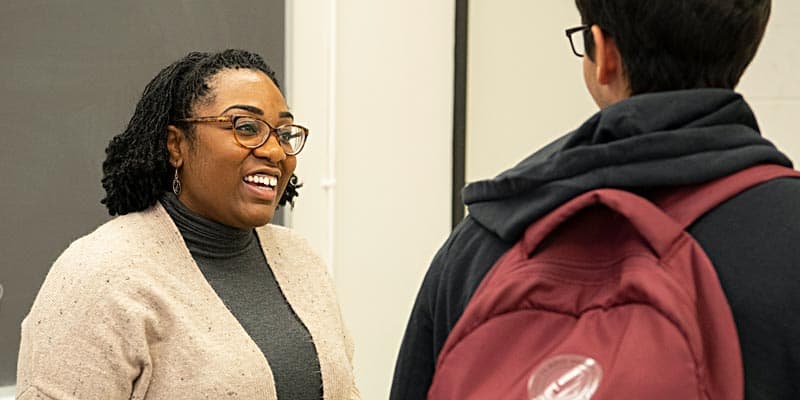
— Nefetaria Yates
Get to know our grad students
This special section of our digital magazine highlights a powerful force behind UD’s research engine.
MORE STORIES
From the Vice President for Research, Scholarship and Innovation: Moving Forward
The UD research community continues to navigate COVID-19, with health and safety the highest priority. In spite of hardships, we’re facing the pandemic with vigilance and resilience.
News Briefs
Check out our COVID-19 research, a virtual visit with the editor-in-chief of Science, and undergrads at work on the Frontiers of Discovery.
Honors: Celebrating Excellence
UD faculty and students have won major recognition for their expertise and contributions.
Guess Who’s Powering Up UD’s Research Engine?
This issue of the University of Delaware Research magazine introduces you to a critical creative force at UD — our graduate students and postdoctoral researchers. Their ingenuity is lighting new routes to discovery and solutions.
Front Edge of Discovery: Strengthening democracy for a better world
It all began with a Joseph Conrad novel. Doctoral student Pablo McConnie-Saad discusses his journey to better understand democracy, as the first Whittington Graduate Fellow at the Biden Institute.
Front Edge of Discovery: Helping children move
Entrepreneur Ahad Behboodi wants to see kids with cerebral palsy move more freely. He plans to commercialize a robotic foot device with the power to help them.
Front Edge of Discovery: A clinical science approach
Lexie Tabachnick, in her fifth year of doctoral studies, helps to mentor other grad students and undergraduates while she studies the powerful impact a UD-developed family intervention program is having on vulnerable kids.
Front Edge of Discovery: Beyond the hands of a potter
Sanchita Balachandran, associate director of Johns Hopkins Archaeological Museum and doctoral student in preservation studies at UD, is uncovering the forgotten makers of ancient Greek ceramics, and in so doing, changing our understanding of the past.
Front Edge of Discovery: Changing the world, one food waste at a time
Elvis Ebikade thinks potato peels hold a lot of promise. He’s working on converting the food waste to valuable chemicals and fuels that can power an environmentally-friendly future.
Front Edge of Discovery: The thing about permafrost is…
As a postdoctoral researcher, Liz Coward collected samples of permafrost from the icy walls of a research tunnel in Alaska to study the carbon stored within it.
A Robotics Revolution
Researchers at the University of Delaware are leveraging robotic systems to gain traction on tough problems. Learn how they are driving forward transformative solutions in agriculture, precision medicine, health care, cybersecurity, marine ecology and more.
UD Robotics: Antarctic food webs
University of Delaware researchers Matthew Oliver and Katherine Hudson think that some biological hotspots in Antarctica may operate less like local farms and more like grocery stores. If they are correct, it could provide new information about how this ecosystem will be affected under climate change.
UD Robotics: Robots these days!
Brain-swarm technology is meant to connect minds and machines. For Associate Professor Panos Artemiadis such robotics research has one purpose: To make life and work better for humans.
UD Robotics: Meet me on the cutting edge
Sambeeta Das is forging into an exciting world you can see only with high-powered microscopes, where sci-fi meets reality. Welcome to the world of microrobots!
UD Robotics: Allies in Overcoming Stroke
Stroke is a leading cause of long-term disability, but UD Professor Jennifer Semrau is working to change that. With the help of a robot, she’s uncovering a critical sixth sense that gets sidelined with stroke.
UD Robotics: Startup with Roots
Adam Stager is working on chemical-free ways to help strawberry farmers improve yield using an autonomous field robot.
UD Robotics: Social Robots
Children have grown up with interactive technologies like Siri, Google and Alexa, but they don’t always know how to stay safe online. UD researchers are working on ways to help them.
A Jewish Oral History
A class helps preserve the precious stories of a little-documented time in Jewish life.
Test Your Knowledge: Getting Back to Nature
To reduce stress and strengthen our immune systems, experts often point us to the outdoors. So let’s get moving! There’s lots to see and hear, absorb and appreciate in nature.


